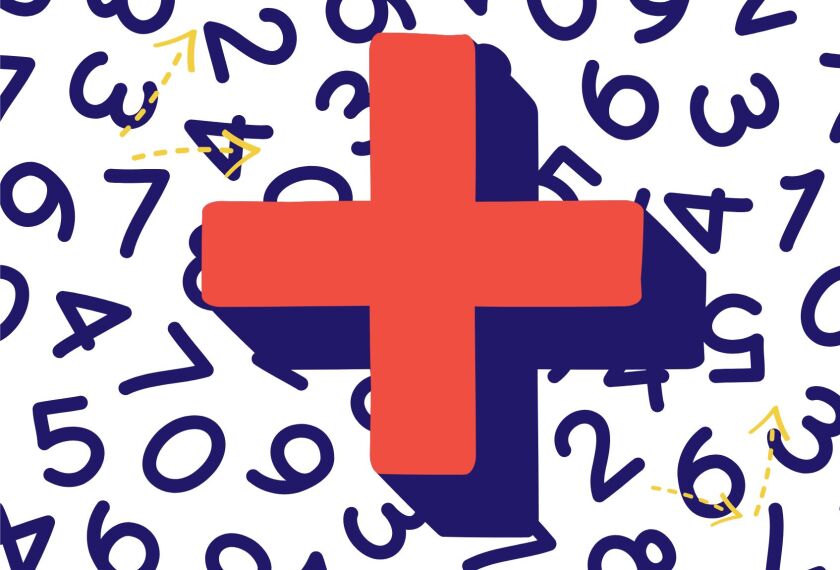Figuring out a word problem. Calculating area and perimeter. Finding the measure of an unknown angle.
All these tasks, and more, draw on an essential foundation of math knowledge, said Brian Bushart, a 4th grade teacher in West Irondequoit Schools in New York: fluency with math facts.
“Everything else we do in math relies on your ability to use that knowledge pretty quickly,” he said.
Bushart was speaking on an Education Week panel on May 25, focused on two important pieces of early math instruction: fact fluency and beginning word problem-solving.
Having a strong grasp on fact fluency—such as single-digit arithmetic, and multiplication tables—frees up mental space for students to solve more advanced, multistep problems, said Nicole McNeil, a professor of psychology at the University of Notre Dame, and another speaker in the panel.
“If we are spending all of our time ‘counting on’ to solve a pretty basic arithmetic fact, we’re not going to have resources available to do those higher-order problem-solving tasks,” she said.
Here are three takeaways from the panel about how teachers can help students develop fact fluency. To read more about this topic, or others in early math education, see Education Week’s new report, Math Foundations for All.
Learning math facts is a ‘multi-year progression’
The end goal of math fact practice is for students to be able to recall them “automatically,” or calculate them “within a second or two,” said McNeil.
But students work up to that goal, said Bushart: “There’s a multi-year progression of learning.”
In kindergarten, students learn how to do basic work with numbers—how to count, for instance. Then, teachers introduce the idea that it’s possible to join and separate numbers.
From there, students learn strategies for joining and separating numbers in a more efficient way. For instance, Bushart said, students can use their knowledge of adding by 10 to make adding by 9 easier—pulling 1 from the other number to transform the problem into one where students are adding by 10, so that 9 + 6 is transformed into 10 + 5.
Then, quickly recalling these facts becomes the goal. Bushart tells his students: “The reason we’re doing it is that practice of remembering is actually what’s going to strengthen your memory over time.”
Math facts should be taught as part of an ‘interconnected network’
Automaticity with math facts is important, but students should understand the why behind them too, Bushart said.
He talked about teaching students who could solve 8 x 5 quickly, but didn’t know what 8 x 6 was. Part of his goal is to help students see these two equations as related.
“I want kids to start to notice that … 8 x 5 is almost 8 x 6, which is almost 8 x 7. That’s the kind of space I want them to be in,” he said.
This is one reason why calculators can’t replace prowess with math facts, said McNeil—if kids are relying on calculators, they’re not developing this relational knowledge. “When students are fluent in math facts, it becomes part of an interconnected network,” she said.
Avoid ‘bombarding’ children with failure when they practice
Bushart only assesses his students on math fact recall once a week or once every other week. He also intersperses facts that students already can recall easily with ones that they’re trying to memorize.
“You don’t want to bombard them with, I don’t know, I don’t know, I don’t know,” he said. “You want a lot of success in there.”
McNeil endorsed this strategy. “Children are only developing automaticity with a few facts at a time,” she said. “Do not practice all of the facts at one time.”
She offered another suggestion: It’s important that students have strategies, like making 10, to compute the facts that they can use if they can’t recall the answer automatically. These strategies can act as a back-up, she said, so that kids can still solve for the answer.
Watch the entire panel below.








